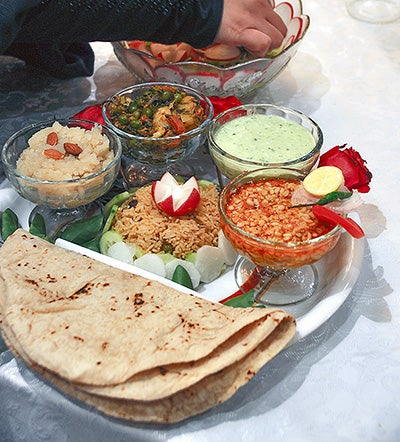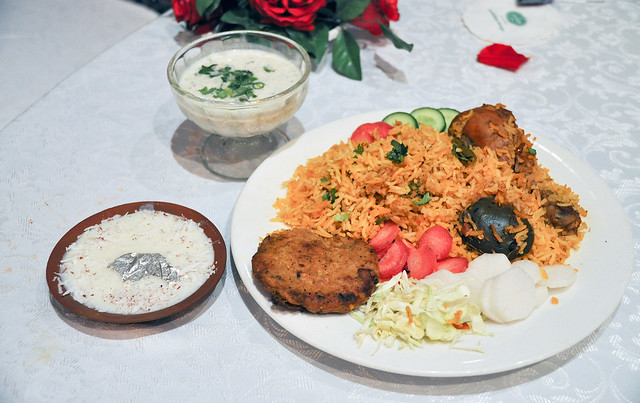Empowering women through Food Tech
Date:
Author: Henriette Bjoerge
Lahore, Pakistan – Imagine if you could order delicious homemade food for lunch and have it delivered at your work or home every day, while at the same time contribute to empowering a female home based worker. This vision may soon be a reality in Pakistan.

Recently UN Women organized a skills development workshop in Lahore on ‘Women and Food Tech Sharing Economy: Employability and Empowerment’ to enable Pakistani women to focus on self-efficiency and resourcefulness through innovation. The training took place from 25th to 29th January and was widely attended by participants such as social entrepreneurs, international and local NGOs, homebased workers, transgender, technology institutes, IT students, food bloggers and representatives from UN agencies in Lahore, Islamabad and Karachi.
Vimlendu Jha and Pratik Kumar, social entrepreneurs from India, were invited to facilitate the workshop. Training sessions were based on their successful pioneering social venture in India called “Million Kitchen”, a tech-based home food ordering platform that enables home cooked meals to be delivered home or at work. The aim of UN Women’s initiative is to introduce and replicate this innovative approach for women homebased workers in Pakistan, and that way give them access to new markets through ICT, and further create employability, enterprise development and women’s economic empowerment.
UN Women brought together a diverse array of stakeholders who discussed, experimented and tested their prototypes throughout the workshop. Participants received training on administration, budgeting and ICT, all leading up to a practicum on Thursday 28th of January where women home based workers successfully sold their home cooked food online.
Mariam Bibbi (65) participated in the workshop representing home based workers and said she had learned a lot. “I already have a business mind, and I am ready to join when this initiative is put into reality. In the past, I sometimes bought cheap juice machines in Quetta and sold them here in Lahore with good profit, but I have never thought about making money from my own cooking. This is such a clever idea!” she said with a big smile.
On Friday 29th of January at the closing session, all participants shared their experiences, and UN Women’s Country Representative Jamshed M. Kazi said: “For UN Women Pakistan, innovation is not just another buzzword. It is a way of thinking and doing, which we aim to infuse in all other areas of our work, including ending violence against women, and women and humanitarian response. The support from the Government of Denmark to enable us to think outside the box and bring along diverse partners from civil society organizations to private sector, universities and the Punjab government, has been a key ingredient for a successful test run of the "Million kitchen" model.”
Fauzia Viqar, Chair of the Provincial Commission on the Status of Women, Government of Punjab, welcomed the initiative and urged the participants to continue the project.
Tehzeeb Baqar (30), Programme Officer of HomeNet Pakistan said the workshop had been different, as usually trainings for women focus on traditional skills, while this week they had to challenge themselves to think in a more innovative way regarding women’s skills. “This is a great homebased workers initiative. Many of these women are already experts in cooking, and know the food preferences of their local communities very well. I am convinced that people in their communities will buy from them”, she said enthusiastically. She further explained: “this concept is a new idea for them; the whole process from how to budget, buy raw material, garnish the food, and then sell it online. With the support of each other, they can promote their products and benefit from each other”.
As Secretary General of the Home-based Women Workers Federation (HBWWF), Zehra Khan stressed that it is important to ensure that women are not left behind within technology, and she therefore found this workshop very promising. “Women can economically empower themselves through this platform and will get to have a stronger say in their families as soon as they make some money” she said.
Closing remarks were given by the chief guest Amna Imam, Secretary for Women and Development Department (WDD), Government of Punjab. She applauded the women for taking the opportunity to learn about economic empowerment and encouraged the participants to use these skills for income generation.
The workshop was supported by the Danish Embassy in Pakistan, Pakistan Innovation Foundation, WeCreate, Lahore College for Women University, School of Leadership, Million Kitchen in India and implementing partners who participated in the workshop.
Photo Gallery
For more information:
Please contact: Henriette Bjoerge
Communications and Advocacy Officer, UN Women Pakistan.
E-mail: [ Click to reveal ]
